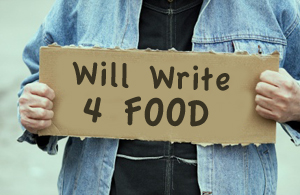With every self-publishing success story, the door opens a tiny bit wider for the acceptance of indie authors. For every Amanda Hocking, Abbie Glines, David Gaughran, Bella Andre, or Hugh Howey (the list goes on and on), industry watchers and consumers alike begin to show a small measure of greater respect for the choices authors are making.
But there are still a few facets of the book industry who remain holdouts, who refuse to acknowledge the contributions of these authors by right of not having been traditionally published. Everything from major book awards to health insurance can be determined simply by whose name is on the back cover of the book, and if there is even a back cover at all.
Bookstores top the list as being one of the last major hurdles for indie authors. Even through inclusion in book distribution catalogs, which often incurs an additional fee, authors still have to take it upon themselves to contact bookstores individually and ask them to stock their titles. Interestingly, it is often independently-owned bookstores that are more likely to form that connection with authors, as major chain retailers often use exclusive distribution agreements.
Major book awards are also typically off limits to self-published authors, regardless of how high the title may have climbed on the best seller list, and for how many weeks it stayed there. The Guardian reported today on the fact that the criteria for consideration includes being published by a known publisher, and that certain award-winning titles only received that accolade after the book was re-released by a traditional publisher. If the book was good enough to win the price, why couldn’t it have been considered before a well-known publisher decided to take a percentage of the royalties?
Finally, book reviews in major publications continue to frustrate authors, as many of the well-known news outlets refuse to review self-published books. Sadly, this phenomenon can even be found at the local, hometown newspaper level.
Some headway is being made, though. The Authors Guild, for one, allows self-published authors and freelance writers to join their club, as long as they’ve earned $5,000 in an 18-month period from the sales of their books. Authors who haven’t quite earned that much but have earned at least $500 in that same period are eligible for Associate membership, meaning they can pay the $90 annual dues but cannot vote.
Mercy Pilkington is a Senior Editor for Good e-Reader. She is also the CEO and founder of a hybrid publishing and consulting company.

